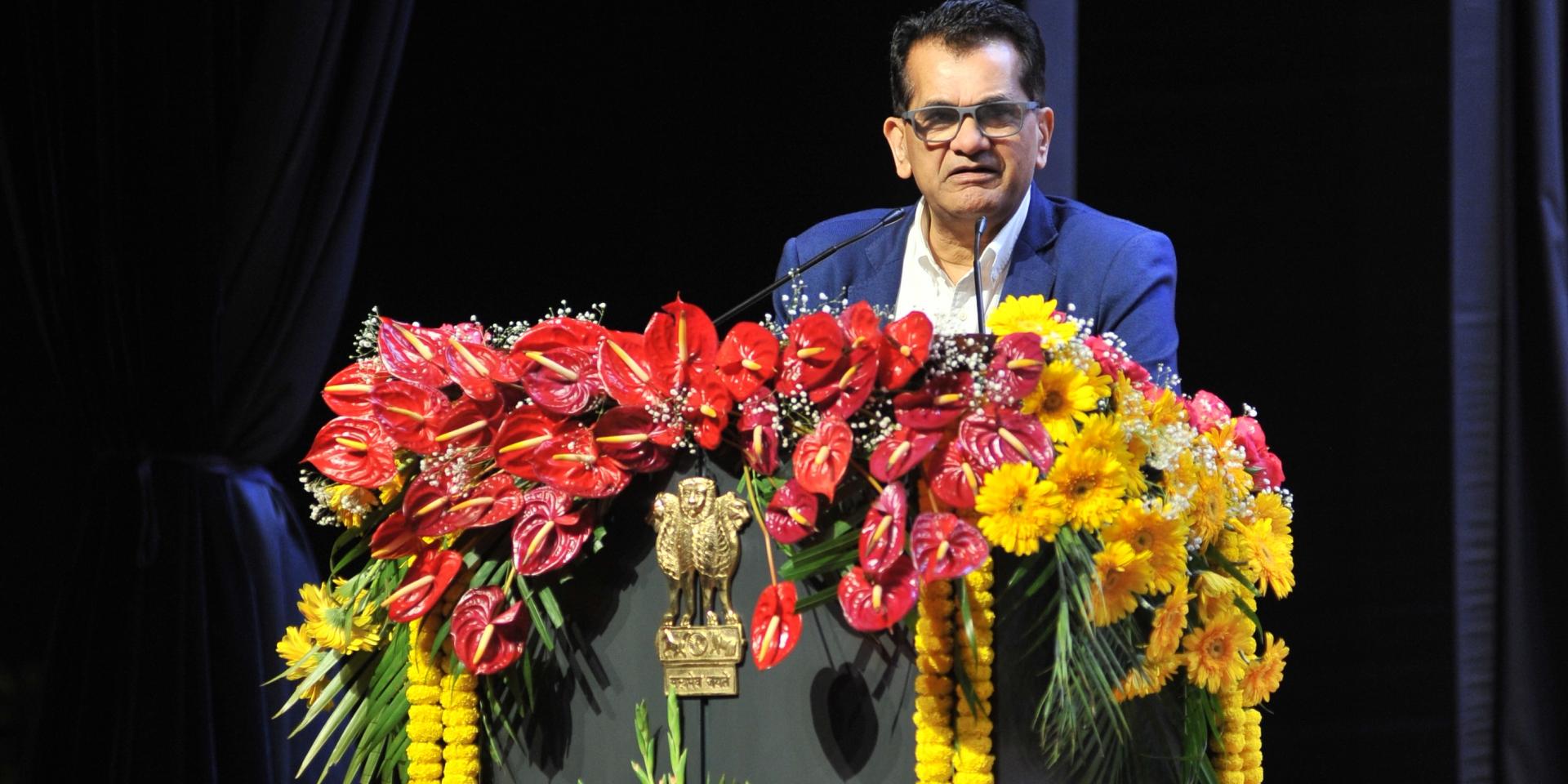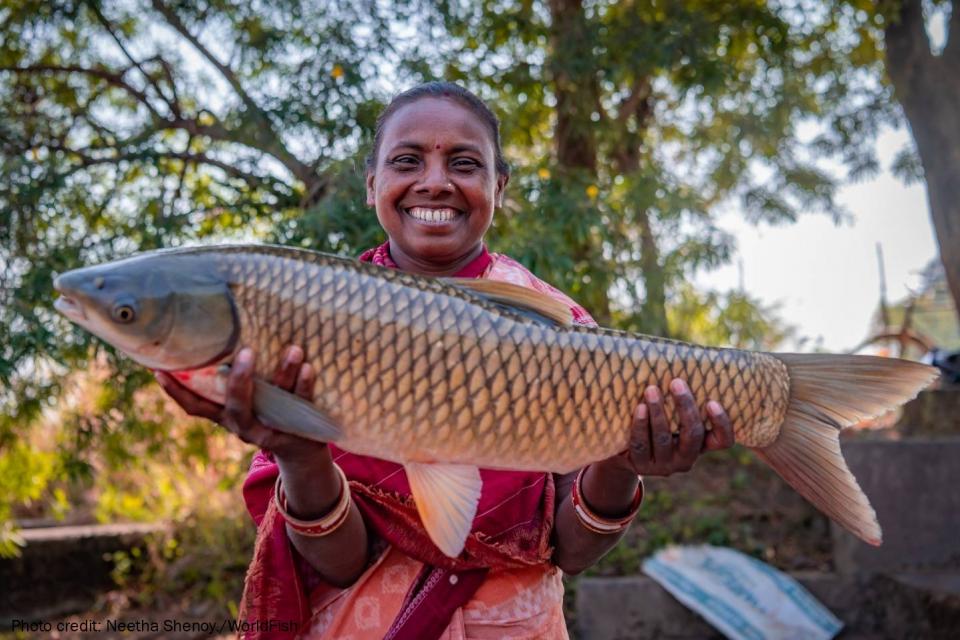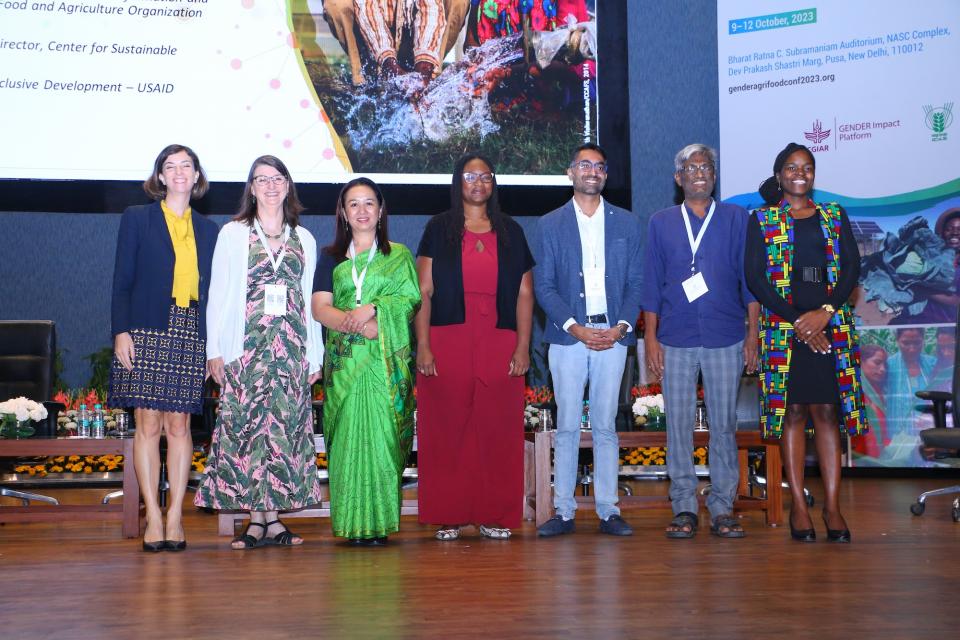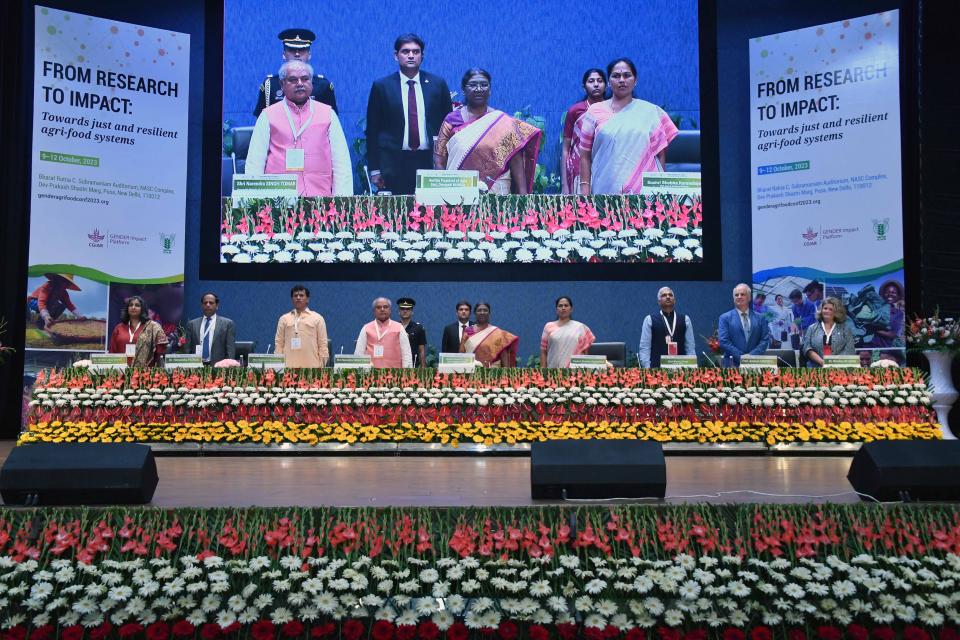Global experts chart new directions for G20 countries to achieve women’s empowerment and leadership
 Photo: GreyMatters Communications.
Photo: GreyMatters Communications.
Strengthening women’s empowerment and leadership in agri-food systems is crucial to increase agricultural productivity, food security and nutrition, and resilience to climate change impacts.
New Delhi, October 13, 2023: Global experts and researchers reached these conclusions at the close of the international gender conference From research to impact: Towards just and resilient agri-food systems, which took place in New Delhi on October 9-12 and which was hosted by the CGIAR GENDER Impact Platform and the Indian Council of Agricultural Research (ICAR).
These insights are particularly timely as they follow on the heels of the successful G20 Summit, during which G20 leaders committed to advancing women-led development and women’s leadership in food security, nutrition and climate action.
Mr Amitabh Kant, India’s G20 Sherpa, in his keynote address on Monday, said that while the G20 countries have shown considerable commitment to advancing gender equality and women's empowerment, it is now crucial to take action.
“While the recent G20 Summit marks progress, there is a huge amount of work to be done in terms of action. This particular conference is critical because it offers agricultural gender research recommendations and insights, and it is critical to implement the recommendations of this conference,” said Mr Kant.
Mr Kant went on to say that if half of small-scale producers benefited from development interventions that focused on empowering women then “it could substantially elevate the incomes of an additional 58 million individuals and enhance the resilience of an additional 235 million people.” He was referencing findings from a recent report on the status of women in agri-food systems.
The research-backed evidence presented during the conference is clear: Intentionally designing agricultural programs, projects, and policies to increase women’s empowerment leads to better outcomes for everyone, including increased agricultural productivity, better nutrition for children, improved dietary diversity as well as greater food security and climate resilience.
Farmer Producer Organisations, or other types of collectives, were highlighted as a best-bet approach that can boost women’s access to markets, resources, agency and empowerment. Research also shows that fostering women’s leadership in all levels of innovation, decision-making and policy formulation is the only way to achieve just and resilient agri-food systems.
Secretary for Department of Agriculture Research and Education, and Director General for ICAR Dr Himanshu Pathak underscored that “mainstreaming women in agriculture can bring about a paradigm shift in economic growth through technical knowledge and greater access to resources,” in his welcoming remarks on Monday.
Summarizing key insights from the conference deliberations, Dr. Seema Jaggi, Assistant Director General (HRD), ICAR, said:
“G20 leaders agreed on four priority areas: investments in food security and nutrition, climate-smart approaches, inclusive agricultural value chains and digitalization for agricultural transformation. CGIAR and ICAR can play a key role in informing these four priority areas.”
A final call to action relates to stronger partnerships between researchers and research users.
“This we week we are working with one of the largest national agricultural research systems in the world. We need to strengthen these partnerships as we cannot generate the evidence we need to be able inform policymaking without heavily engaging with the national agricultural research systems,” said Dr Ranjitha Puskur, Country Representative for India and Research Leader of Gender and Livelihoods, International Rice Research Institute (IRRI).
Dr Puskur also highlighted the need for strengthening partnerships between researchers, policymakers, and the private sector.
Speaking in the closing plenary session on Thursday were, in addition to Dr Puskur and Dr Jaggi, Dr Maureen Miruka, Senior Director of Program Quality and Partnerships at CARE USA; Dr Stefan Kachelriess-Matthess, Senior Programme Manager, GIZ; and Ms Vicki Wilde, Senior Program Officer, Women’s Empowerment, Agriculture Development at the Bill and Melinda Gates Foundation. As key development partners, they gave their perspectives on what is needed to move from research to impact, including renewed focus on designing agricultural solutions that consider the needs and constraints of women smallholders.
The four-day international agricultural gender research conference, which comprised 4 plenary sessions, 54 parallel sessions, and 6 poster sessions, brought together delegates from more than 60 countries, deliberating how agricultural gender research can contribute to more resilient and just agri-food systems.
See more details via India's Press Information Bureau.


